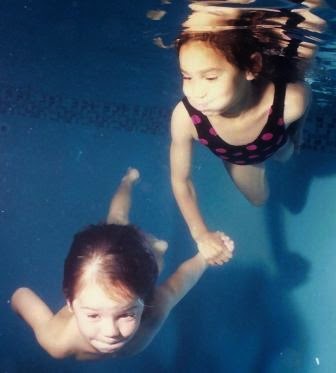Since 1983 I have been privileged to teach/assess/develop a
diversity of ability/disability/inability in water from infants, toddlers,
children, adolescence, adults, disabled, special needs, teacher-training at
university level, skills training drills at provincial and national level water
sports
The diversity of skills includes learning to swim, swimming
stroke techniques, drown-proofing techniques, surf life saving, varied surfing
disciplines, open water kayaking, snorkelling, under water hockey, tri-swimming
and rehabilitation after surgery/sport injury
I found that there was a common characteristic which appears
in most where swimming is involved, ‘self doubt’
Wonderfully, as each individual learned, progressed,
achieved the short term goals set for themselves with their target goal in
constant view, developed an understanding of water and their own ability,
common qualities emerged ... the development of life skills. These qualities influence lives within and
outside of the swimming environment. We know that swimming, stimulation in
water influences life skills more than any land based activities, regardless of
age
What do we understand 'life skills' to be .... that which
tends towards growth, development, progress, ability, talent, cleverness,
dexterity, expertise, proficiency, being competent, flair, aptitude
If you are wondering why all this 'stuff' about thinking and
conscious thought and present time and life skills, know that you are being
made consciously aware of the qualities that are never 'voiced', those that are
an intrinsic part of the abilities that we have, that we do not use, those that
we need to be aware of to learn and understand anything and everything that we
do and want to learn. The teacher too must have these qualities. Teaching and
learning then becomes simple and fun
Only I can think for myself. Only you can think for
yourself. There is no other or easier way
Our main focus here at this time is to have no illusions
about how valuable 'grassroots' of all teaching and learning is. That ‘basic’
is where we return to when 'in doubt'. An advanced athlete is advised to find a
teacher/coach/trainer who knows and works with this value



.jpg)

